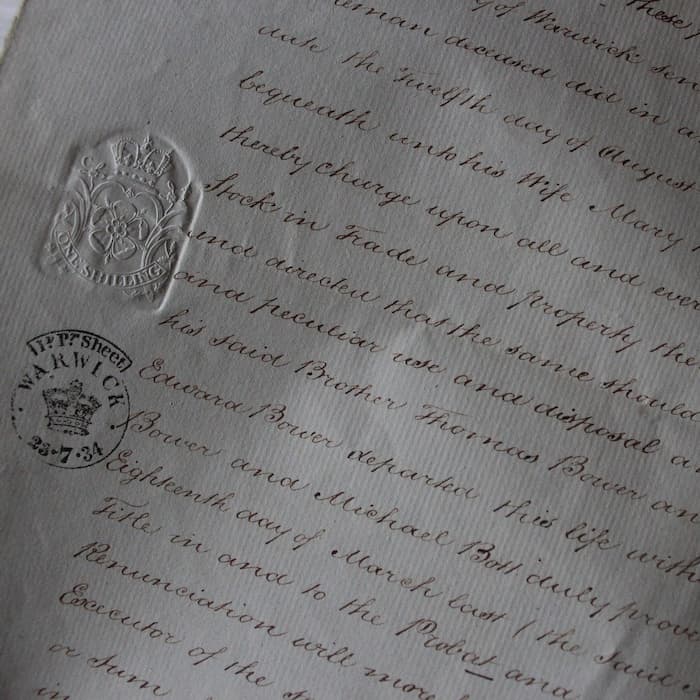Legal
Proposed Rises In English, Welsh Probate Fees - An Overview

If proposed new fees for probate services take effect, there will be pressure to deal with big recent delays in the system and improve efficiency. The situation became increasingly difficult during the pandemic.
The following article comes from Louise Garrett, probate
solicitor at Hunters
Law, based in London. Garrett discusses proposed increases in
probate fees and explains that for this to succeed, the probate
service must show greater efficiency and coordination. (The
proposed changes apply to England and Wales; Scotland has a
different system from the UK.)
The probate process is obviously a central feature of wealth
transfer and the execution of wills. Private client advisors need
to follow the details, and the editors of this news service are
pleased to share these views, and invite replies. Jump into the
debate! Email tom.burroughes@wealthbriefing.com
and jackie.bennion@clearviewpublishing.com
On 23 September, the Ministry of Justice will close its
consultation seeking views on whether to align the fees for
grants of probate into a single fee for both professional and
individual probate applications.
If the proposals for the new fee structure are introduced in
early 2022, as suggested, Her Majesty’s Courts and Tribunals
Service (HMCTS) will be under pressure to prove that the new flat
fee of £273 ($377.9) for estates worth £5,000 has been justified.
One of the main criticisms of the proposed fee increase is that
the probate service has been subject to significant delays in
recent times and so it will need to demonstrate increased
efficiency.
Indeed, the MoJ says in its consultation that the proposals "are
estimated to raise additional income of £5 to £6 million in
2021/22 and £23 to 25 million p.a. in 2022/23 onwards. This
income is crucial for HMCTS and will allow it to run an efficient
and effective courts system".
Such an increase in funding means that it will be harder for
HMCTS to argue that it is inadequately resourced to provide the
efficient level of service expected of it. An HMCTS blog
published last month by Adam Lennon acknowledges that the probate
service "could be improved, and that some applicants have
experienced difficulties and delays". This self-acknowledgement
on behalf of HMCTS should be optimistically viewed as a sign of
the service moving towards a more timely and effectual process
for both the professional and individual applicant.
Mr Lennon also explains that "applying for probate and managing
inheritance tax obligations can be intrinsically linked, so we’re
working closely with HMRC to improve how we share information."
For government departments to be working towards a more unified
approach is welcomed news and, in an increasingly digital world,
there seems less reason not to strengthen sharing platforms which
benefit public resources and applicants alike.
Chapter 6 of HM Treasury’s handbook Managing Public
Money states "different groups of customers should not be
charged different amounts for a service costing the same." If the
flat fee is introduced for both types of applicant, critics will
no doubt be looking closely to see that the same level of service
is provided to both individuals and professionals.
It certainly seems as though the disparity between the two types
of application has narrowed and that the digitalisation of the
service has resulted in a more user-friendly application process
removing some of the technicalities which made paper
applications, in particular those made by individuals, open to
errors and omissions.
The consultation says that current probate fees do not meet the
cost of providing the service, and there is currently a deficit.
If this is the case, then an increase in fees seems inevitable,
despite critics being opposed to the rise when the existing
service is considered poor. One can't ignore the difficulties
posed by the pandemic over the last 18 months; and so, hopefully,
as we move towards more normality, development and monitoring
will culminate in a better probate service in the immediate
future.
It will remain to be seen whether the proposed increase will
result in any public subsidy being required for the service and
transparency on this issue will be expected. Indeed, one of the
objectives of the proposals is "to protect access to justice by
ensuring that courts and tribunals are adequately resourced,
while reducing the overall taxpayer subsidy for HMCTS." On the
other side of the coin, the MoJ will be criticised if it is seen
to be profiting in any way from the increase in probate fees. No
doubt further cost recovery exercises will be carried out as the
probate service continues to develop.